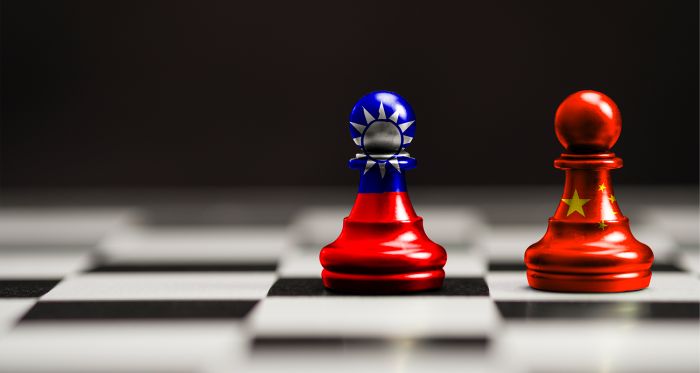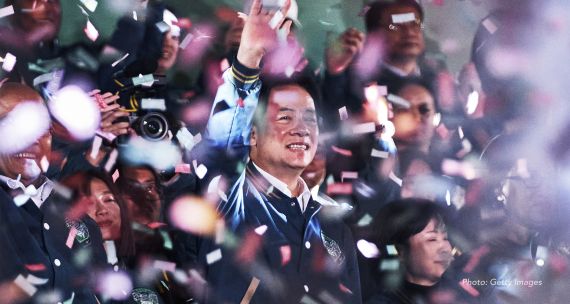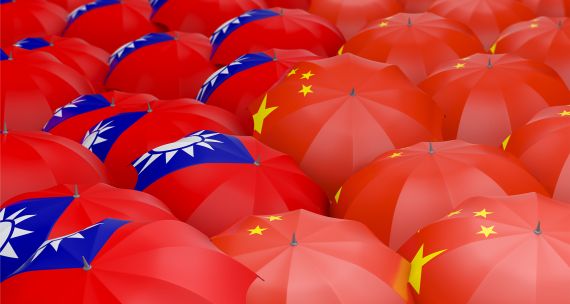Taiwan’s high-stakes presidential and legislative election is just ahead on January 13. Three parties and three men are facing each other for a one-round, winner-takes-all presidential vote. Lai Ching-te, from the Democratic Progressive Party (DPP, or ‘green camp’), is the current vice-president and the favourite to win. His main challenger is Hou Yu-ih, from the long-time former ruling party Kuomintang (KMT, or ‘blue camp’). And the third man is the innovative former Taipei Mayor Ko Wen-je of the Taiwan People’s Party (TPP or ‘white camp’).
Will the DPP get another four years after eight years in power? Or will the KMT manage to return to power? Could Ko come out from the middle for a surprise win? Whatever the outcome, it is already clear that the election will likely showcase the strength and stability of Taiwan’s democratic institutions at a time when democracy is under threat in many key jurisdictions.
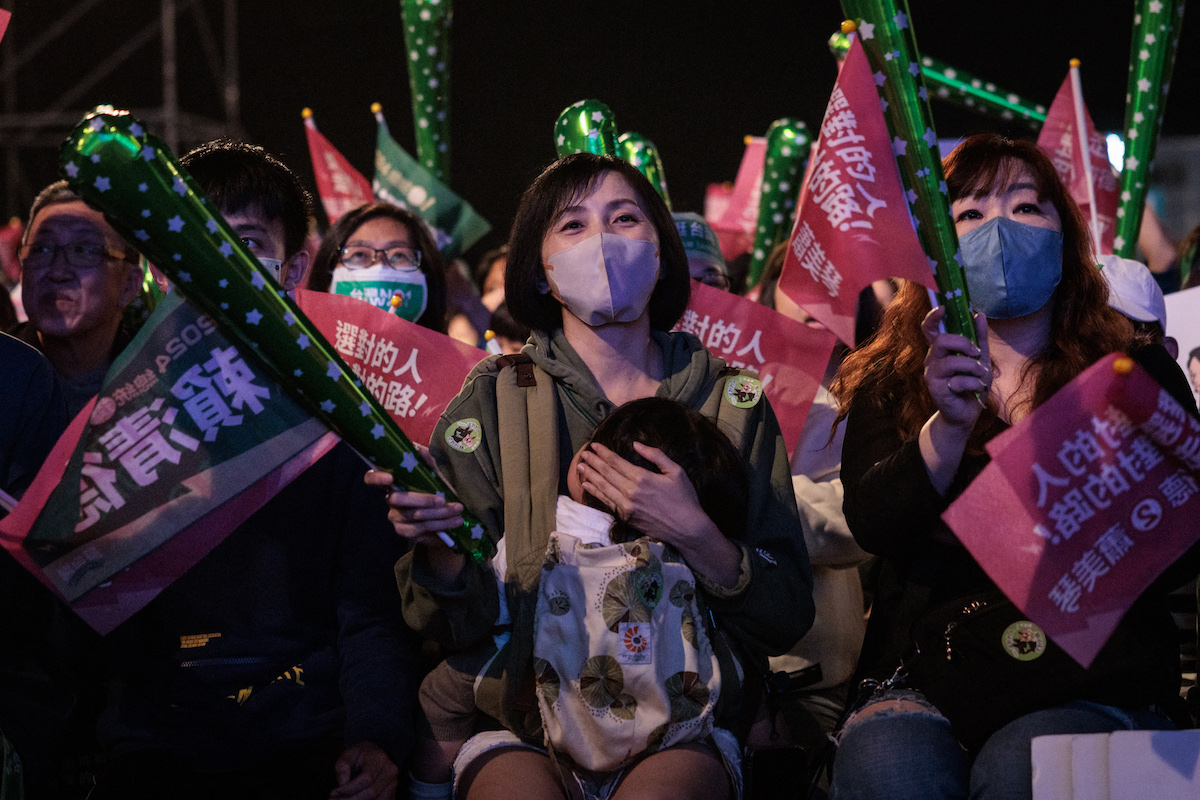
Despite the sensational external rhetoric on the risks of massive interference or conflict, the mood on the ground is one of resilience, and the electoral campaign is remarkably normal. There is some concern about geopolitics, but domestic socio-economic issues and party identity and trust may end up driving the outcome. Key choices of foreign policy, cross-strait relations, and even foreign economic relations are structurally constrained by the U.S.-China dynamic, and the three parties have mostly converged in their positions on those issues.
The last opinion polls allowed were recorded on January 3, as Taiwan does not allow further polling (or disclosure of polls) in the last 10 days of the campaign. And the numbers received by the three candidates have been remarkably stable since the start of the campaign. Lai (DPP) leads the pack with a median support rate of 36 per cent. He stands for the continuity of policies pursued by President Tsai, including a stronger defence posture, strong relations with democratic allies such as the U.S., Canada, and Japan, and support for decreasing economic exposure to China. The DPP is open to talks with the mainland, but this has proved difficult so far due to a lack of trust from both sides. The DPP also opposes nuclear energy and encourages green technology and LNG dependence. It has a strong core in Southern Taiwan and resonates with the younger generation around issues of Taiwanese identity and autonomy.
Taiwan Elections 2024 Presidential Candidates and Policies Primer
Taiwan’s public opinion polls
Hou (KMT) has a median support rate of 31 per cent, placing him five points behind Lai. He runs on the promise of increased economic growth, clean government, and professional management of complex diplomatic situations with both the U.S. and China. The KMT argues that its steady hand can protect the status quo and prevent a potential war.
As for Ko (TPP), he is credited with a median score in the polls of 24 per cent. As a former physician who commits to a serious problem-solving attitude (his nickname is ‘KP,’ or ‘Keep Promise,’ also ‘Ko Professor’), he speaks frankly and promises to address key social, energy, and economic issues. On the international side, he promises to take a middle path between the DPP (too confrontational with China, as per Ko) and the KMT (too close to China). He resonates with young people in cities like Taipei, but lacks a full slate of possible ministers. He also lacks a core base, while the DPP can count on a solid base of 35 per cent and the KMT of 25-30 per cent of voters.
The final few days of the campaign in Taiwan could be volatile. Fifteen per cent of voters are still undecided, and traditional TPP voters could either stick with Ko, hesitate to vote, or resort to strategic voting by going with the DPP (their former home) or the KMT (for economic reasons or due to incumbency fatigue). Another variable is what popular billionaire businessman Terry Gou (a former Foxconn CEO touted as a possible fourth candidate earlier in the race) decides to say in the final few days of the vote, since his words could sway some voters.
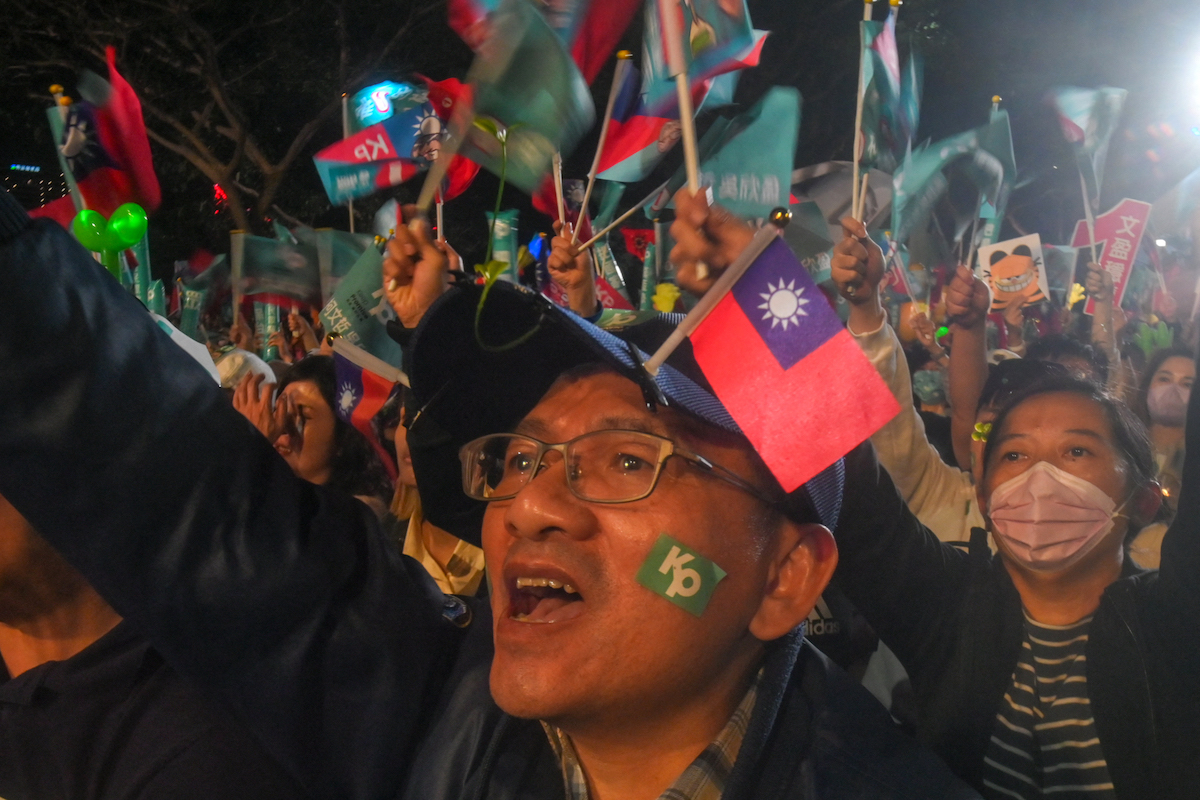
In the legislative race, no party is likely to win a majority, but the KMT is most likely to win the larger numbers (50-55 seats, just short the majority threshold of 57). The DPP expects to fetch around 40-48 (down from 61 before the election). The TPP may be in a kingmaker position in Taiwan’s Legislative Yuan, with about 10-12 possible seats.
It is striking that the DPP is polling much below its previous victory levels in 2020 (57% for Tsai) and 2016 (56%). This reflects incumbency fatigue in the post-COVID era, economic worries, and frustration with rising economic inequality. Indeed, a plurality of voters seems ready for a change in governing parties (59% seeking a change vs 34% saying that DPP should remain in power, according to the Taiwan Public Opinion Foundation in late December). In another poll in January, only 35 per cent of voters indicated that they were happy with the DPP staying in power, while 45 per cent responded that they were not happy with it. This is despite remarkable COVID management in 2020-2021 and robust international economic policy by the DPP.
The central issues for Taiwanese voters
Polls and conversations on the ground indicate that the most salient issues with Taiwanese voters are concerns about economic prospects and incomes, increases in rents and real estate (squeezing young peoples’ livelihoods), energy insecurity, and economic inequality. Economic growth has been decent but unstable, with a likely growth rate of 1.4 per cent in 2023, after strong growth above 4 per cent in 2021-2022 (6.45% in 2021, but only 2.43% in 2022) in the post-pandemic period. This slowing economy has been a concern in many ways, but particularly around incomes (in relation to rising rents).
Economic inequality has been rising since the 1980s, but with a recent acceleration since 2020 and the COVID pandemic. Increasingly, Taiwan has become a dual economy, with workers in the tech industry doing very well, and all others stagnating. Electronics and IT dominate Taiwan exports, with a 44 per cent share.
Pressure from China toward reunification and rising U.S.-China tensions are also a concern with voters. In a Tianxia Zashi poll in August 2023, 46 per cent of voters indicated they were concerned about a possible war within five years. But voters seem to treat this as a background issue, not a decisive voting factor. Most voters don’t react to continuous military incursions from the mainland, given the continuous nature of these events over decades. The Hong Kong issue was highly salient in the 2020 election, but it appears hardly visible in the 2024 election.
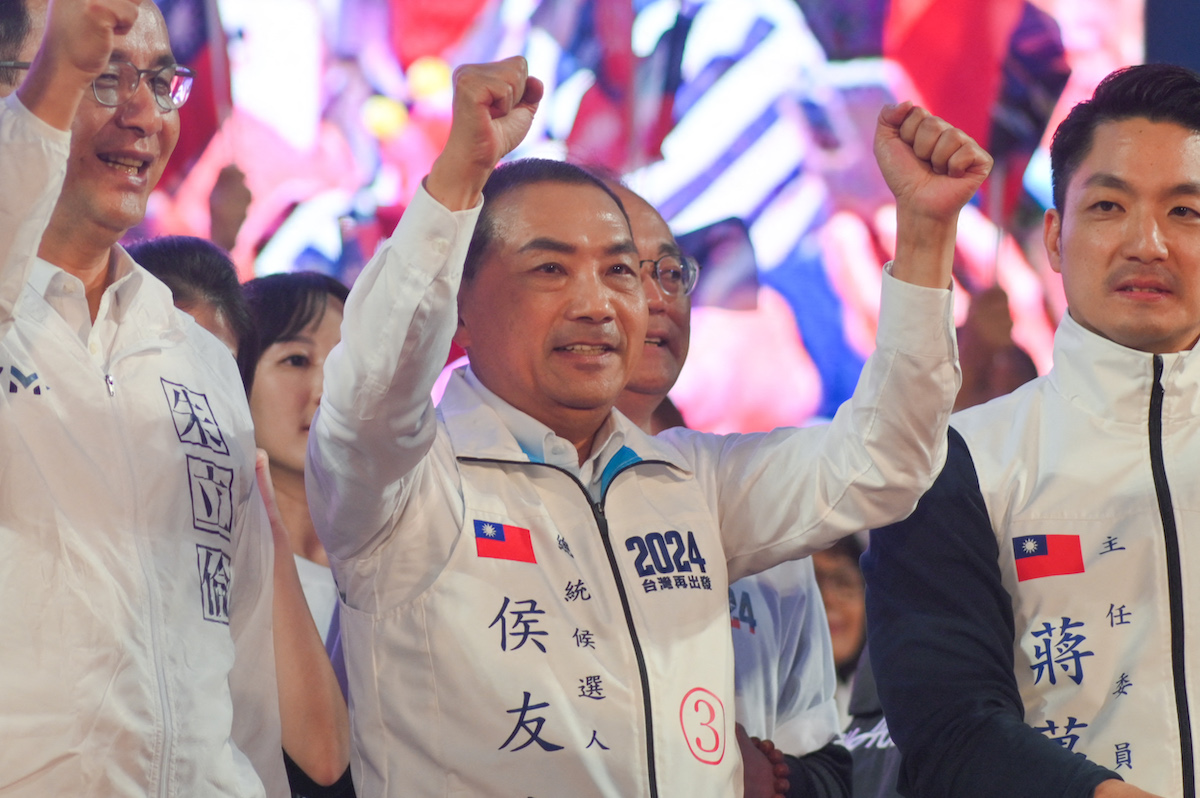
The three party platforms have greatly converged to similar positions regarding cross-strait relations and defence. The incumbent DPP promises to seek increased dialogue with the mainland, while the KMT promises an increased defence posture to accompany its own dialogue plan. The TPP, meanwhile, promises to be the median party between the DPP and KMT. All three parties support increasing the military budget from 2.4 per cent to three per cent, as recommended by the U.S. And all three parties support the expansion of mandatory military service for young men from four months to one year (already voted and effective January 2024).
This does not mean China will react equally to the three parties after January 13. In general, because of past declarations by Lai indicating support for independence (not repeated in 2023, as Lai has struck a more pragmatic chord) and China’s own frame of mind, one can expect that Beijing will likely respond with sticks to Lai, carrots to Hou, and tests to Kou, depending on who comes out on top.
The week ahead
Again, we can expect a very intense and volatile last week in the campaign. Taiwan’s elections often get decided in the last few days in response to breaking events and new information. This is where the world needs to watch to see whether China interferes through social media or internet platforms, as the DPP fears. The Taiwan government singled out concerns about TikTok and how the Chinese Communist Party’s actions could influence voters. It is often hard to differentiate between interference and cross-party attacks, especially in the age of fake news and misinformation generated through artificial intelligence.
Still, watching the election campaign so far, it is remarkable to note the resilience of Taiwan’s democratic institutions and degree of trust in the electoral system. In the current age, this cannot be taken for granted. Taiwanese voters tend to keep calm and carry on with their own sense of identity, policy priorities, and pragmatism. This contrasts with the more threatening discourse outside Taiwan.
Note: This article integrates some data and elements from Tsai, Chung-min and Yves Tiberghien, “Taiwan’s democratic institutions the clear winner in this month’s elections,” East Asia Forum, forthcoming 1/7/2023.

